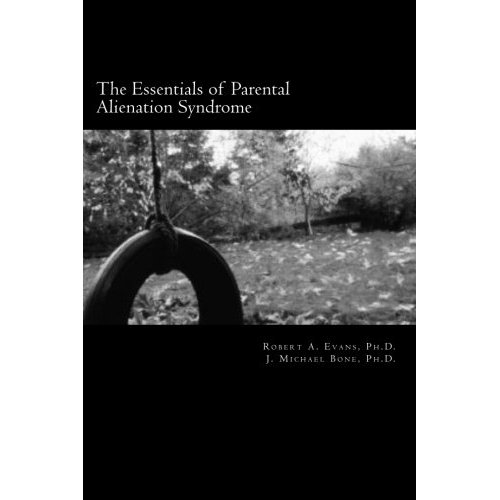This is the forth article in a series focusing on the issues commonly cited against Parental Alienation Syndrome (PAS). It is interesting to note that the same criticisms levied against PAS are being cited against Parent Alienation (PA) as well.
I was recently asked in a court case if PA actually existed, after all it’s not in the DSM-5? As discussed elsewhere the distinction is that PAS was thought to have only one cause, hence the use of the term “Syndrome”. Dr. Gardner, a physician made a comparison between PAS and Downs Syndrome. Downs Syndrome is caused by a chromosomal abnormality in each and every case of Downs Syndrome.
Dr. Gardner’s experience was that in virtually every case of PAS the mother was responsible. In 1991 he modified his position to where he thought that about 50% of the cases were caused by mothers and 50% by fathers. So, while the literature has dropped the concept of Syndrome, one could think of Parent Alienation as an umbrella term where a child is alienated from a parent and the question becomes why? Does the targeted or rejected parent’s behavior justify the child’s reaction or is there someone or others behind the alienation?
Today we will dive deeper into argument number three: Parental Alienation Syndrome/Parent Alienation Leads To Confusion In Clinical Work With Children, It’s Not Reliable or Valid.
Kelly and Johnson in 2001 thought Parental Alienation Syndrome (PAS) oversimplified the causes of alienation and that it leads to confusion and misuse in litigation. In order to rectify PAS’ shortcoming they proposed “the alienated child”. According to them, the alienated child:
“expresses, freely and persistently, unreasonable negative feelings and beliefs toward a parent that are significantly disproportionate to the child’s actual experience with that parent”.
Warshak points out that this concept retains two of the three essential elements in PAS, these include: The free and persistent expression of negative feelings which corresponds to the campaign of denigration.
The unreasonable negative feelings corresponds to the unjustified aspect to the child’s complaints.
They explicitly remove the “programming” parent and place the primary focus on the child’s observable behavior. Only after a therapist documents the child’s behavior do they then assess why the child is now rejecting a parent. Presumably if a therapist discovers a parent has been indoctrinating the child, then all the elements of PAS would be accounted for.
All three of the PAS elements are there, their order, however, varies. It is somewhat unclear why Kelly and Johnson’s proposed investigation is less confusing than Gardner’s concept of Parental Alienation Syndrome, when in fact, by their own words are apparently similar.
Reliability
The term reliability refers to the degree to which a measure or diagnosis, is consistent on repeated trials or among different observers. PAS has high reliability if different clinicians, examining the same children reach agreement on whether or not a child has the syndrome. It is not necessary for clinicians to reach one hundred percent agreement in order to qualify as having reached a scientifically acceptable level of reliability. This rarely happens now with currently acceptable or non-controversial diagnoses. Doctors often disagree on a diagnosis, hence the need for a second opinion.
The description of Parental Alienation Syndrome symptoms and the description of the behaviors seen in the alienated child as presented earlier appear to be apparently clear. In fact, several recent studies have demonstrated the reliability of identifying the symptoms of PAS.
Janelle Burrill-O’Donnell in 2001 corroborated the observations and definitions of PAS as well as the levels of severity as described by Gardner. Carlos Rueda in 2004 demonstrated a significant level of concordance among raters of PAS cases, thereby demonstrating the reliability of the levels of severity.
The argument that PAS is not a reliable concept appears to be quickly fading away.
On an anecdotal level we see commonality among researchers. Gardner, for example, cites one of the symptoms of PAS as “weak , absurd or frivolous rationalizations for the deprecation”. Kelly and Johnson cite “trivial or false reasons used to justify hatred” in an alienated child. While Kelly and Johnson are explicit detractors of PAS it is noteworthy the similarity of the symptoms descriptions they offer in lieu of Gardner’s presentation.


